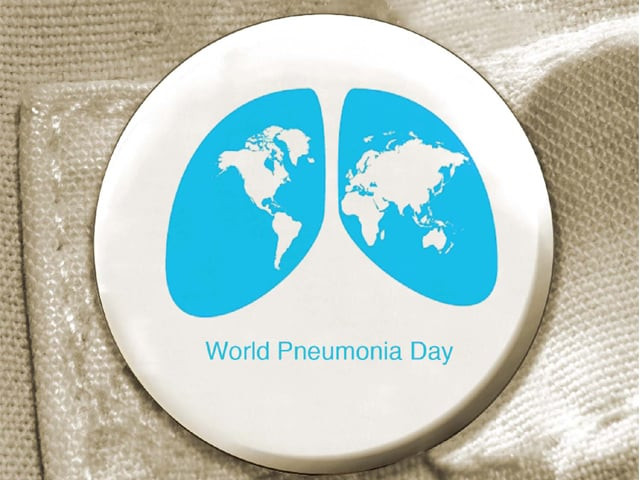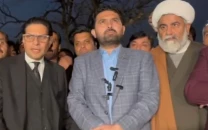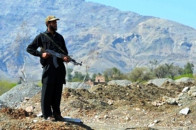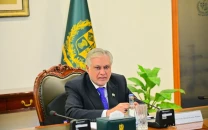The impact of pneumonia on our children
World Pneumonia Day today, 26,000 children under five die of pneumonia in Pakistan every year.

The impact of pneumonia on our children
Chuadhrian ka Muhalla in Bhara Kahu, where Naseem lives, is a suburb of the capital.
There is no gas supply in the area, so Naseem can not keep her house warm. She had to wash her children and their nappies in cold water. “My husband is paralysed and I go to work all day long, so I can not collect leaves and branches which I could burn to warm my house,” she added.
It was because of these circumstances, claims Naseem, that her daughter caught a cold last winter, which developed into severe pneumonia and proved fatal.
The area she lives in has no gas facility, therefore keeping her house warm, washing her children and their nappies with warm water was impossible for her therefore her daughter caught cold, which later turn in to sever pneumonia and resulted in her death.
Dr Jan Alam, general physician in Bhara Kahu, said that every winter a large number of children came to his clinic with symptoms of pneumonia. He believes that poverty and resulting inability to provide a warm and comfortable environment to growing children makes them vulnerable to the disease.
“Of what use is vaccination or awareness to people who have to sleep on cold floors and can not afford warm clothes or food?” he asked.
November 12 will be observed around the globe as the second annual World Pneumonia Day. With over seven million cases of Pneumonia every year, Pakistan is ranked third by the World Health Organization (WHO).
According to our Ministry of Health, 26,000 children (under five years of age) die of pneumonia in Pakistan every year. Internationally, almost 1.8 million children succumb to the disease.
Health experts suggest that pneumonia is the number one killer of children (under five years of age) in Pakistan. They said that the government could combat the disease by including pneumococcal vaccine in the Expanded Programme on Immunisation (EPI).
Chest specialist Dr Shazil Manzoor of Shifa International Hospital Islamabad, senior physician Dr Rizwan Ahmed at Polyclinic Hospital Islamabad and Dr Rai Mohammad Asgher, professor of pediatrics in Benazir Bhutto Hospital (BBH) Rawalpindi agreed that the absence of a pneumonia vaccine from the EPI was cause for concern.
They said that the pneumococcal vaccine was available in the market but was expensive, so people belonging to low-income classes were unable to afford it. “One doze of pneumococcal vaccine costs Rs42,000 and full course requires four dozes,” said Dr Asgher.
Dr Altaf Boasn, national manager EPI, said that the pneumococcal vaccine would be included in the EPI starting January 2011. When asked why this had not been done as yet, he said the Ministry of Health had limited funds.
Dr Asghar predicted an increase in the number of pneumonia cases this year because of ‘dry’ winters.
Dr Manzoor said that due to lack of awareness, there were many misconceptions among people about the causes of pneumonia.
“There is a general perception that taking bath with cold water in the winters can cause pneumonia, which is completely wrong,” said Manzoor.
He added that if Influenza was not treated on time, it could develop into pneumonia.
A person with a week immune system can develop pneumonia anytime through out the year. He added that patients with diabetes, cancer, kidney infection, HIV/AIDs, tumor, asthma, or heart conditions were more prone to this disease.
Published in The Express Tribune, November 12th, 2010.



















COMMENTS
Comments are moderated and generally will be posted if they are on-topic and not abusive.
For more information, please see our Comments FAQ